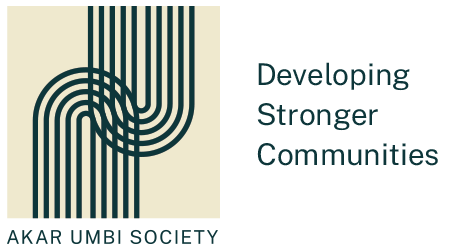At Akar Umbi Society,
we are all about ending marginalisation through stronger communities.
At Akar Umbi Society,
we are all about ending marginalisation through stronger communities.
Is there Marginalisation in Malaysia?
Marginalisation in Malaysia is a prevalent issue, particularly affecting marginalised communities such as indigenous groups, ethnic minorities, refugees, migrants and the urban underprivileged. Our marginalised populations grapple with restricted access to essential services like education, healthcare, and jobs, fueling economic inequality and social isolation. Discrimination based on ethnicity, religion, and gender further exacerbates marginalisation, with indigenous and minority communities often finding their cultural practices and languages sidelined in favor of mainstream norms, perpetuating inequality and hindering social cohesion. The lack of representation and voice in decision-making processes also contributes to the marginalisation of these communities.

Social
Social marginalization is a widespread issue that impacts individuals in a multitude of ways. It can result from various factors such as gender, identity, religion, culture, language, and abilities. This exclusion can lead to unequal treatment in employment, education, healthcare, and access to resources. It is a complex phenomenon that affects people across different aspects of their lives, limiting their opportunities and hindering their ability to fully participate in society.

Economic
Unemployment and underemployment remain significant challenges, particularly among youth and marginalised communities. Limited access to quality education, skills training, and job opportunities contributes to persistent unemployment rates, especially in rural and urban poor areas. Without adequate social safety nets, vulnerable populations are left at risk of falling deeper into destitution.

Politic
Despite being one of the most diverse countries in the world, the marginalised communities in Malaysia are still not adequately represented in decision-making processes. The lack of participation and representation can profoundly affect people in these communities, perpetuating systemic inequalities and undermining efforts to achieve social justice and inclusive development.

Is there Marginalisation in Malaysia?
Marginalisation in Malaysia is a prevalent issue, particularly affecting marginalised communities such as indigenous groups, ethnic minorities, refugees, migrants and the urban underprivileged. Our marginalised populations grapple with restricted access to essential services like education, healthcare, and jobs, fueling economic inequality and social isolation. Discrimination based on ethnicity, religion, and gender further exacerbates marginalisation, with indigenous and minority communities often finding their cultural practices and languages sidelined in favor of mainstream norms, perpetuating inequality and hindering social cohesion. The lack of representation and voice in decision-making processes also contributes to the marginalisation of these communities.

Social
Social marginalization is a widespread issue that impacts individuals in a multitude of ways. It can result from various factors such as gender, identity, religion, culture, language, and abilities. This exclusion can lead to unequal treatment in employment, education, healthcare, and access to resources. It is a complex phenomenon that affects people across different aspects of their lives, limiting their opportunities and hindering their ability to fully participate in society.

Economic
Unemployment and underemployment remain significant challenges, particularly among youth and marginalised communities. Limited access to quality education, skills training, and job opportunities contributes to persistent unemployment rates, especially in rural and urban poor areas. Without adequate social safety nets, vulnerable populations are left at risk of falling deeper into destitution.

Politic
Despite being one of the most diverse countries in the world, the marginalised communities in Malaysia are still not adequately represented in decision-making processes. The lack of participation and representation can profoundly affect people in these communities, perpetuating systemic inequalities and undermining efforts to achieve social justice and inclusive development.
Our Theory of Change
Marginalisation is a complex issue but we believe that by investing time and resources to equip and strengthen grassroots communities, we can create access to equal opportunities, build community agency, and break cycles of systemic poverty.
Read our stories of change

Meet Amber
Meet Amber, a remarkable woman from our Azalea Initiative Cohort 1 who is making a significant impact in her community. Click to read her story!

Meet Rofique
Meet Rofique, the 18-year-old who provided food aid to over 200 families when Malaysia went into a nationwide Covid-19 pandemic lockdown. Click to read his story!

Meet Marissa
Meet Marissa, who, on her own initiative, decided to assist her community during the pandemic as not much help was coming their way. Click to read her story!
Our Theory
of Change
Marginalisation is a complex issue but we believe that by investing time and resources to equip and strengthen grassroots communities, we can create access to equal opportunities, build community agency, and break cycles of systemic poverty.
Read our stories of change

Meet Amber
Meet Amber, a remarkable woman from our Azalea Initiative Cohort 1 who is making a significant impact in her community. Click to read her story!

Meet Rofique
Meet Rofique, the 18-year-old who provided food aid to over 200 families when Malaysia went into a nationwide Covid-19 pandemic lockdown. Click to read his story!

Meet Marissa
Meet Marissa, who, on her own initiative, decided to assist her community during the pandemic as not much help was coming their way. Click to read her story!

